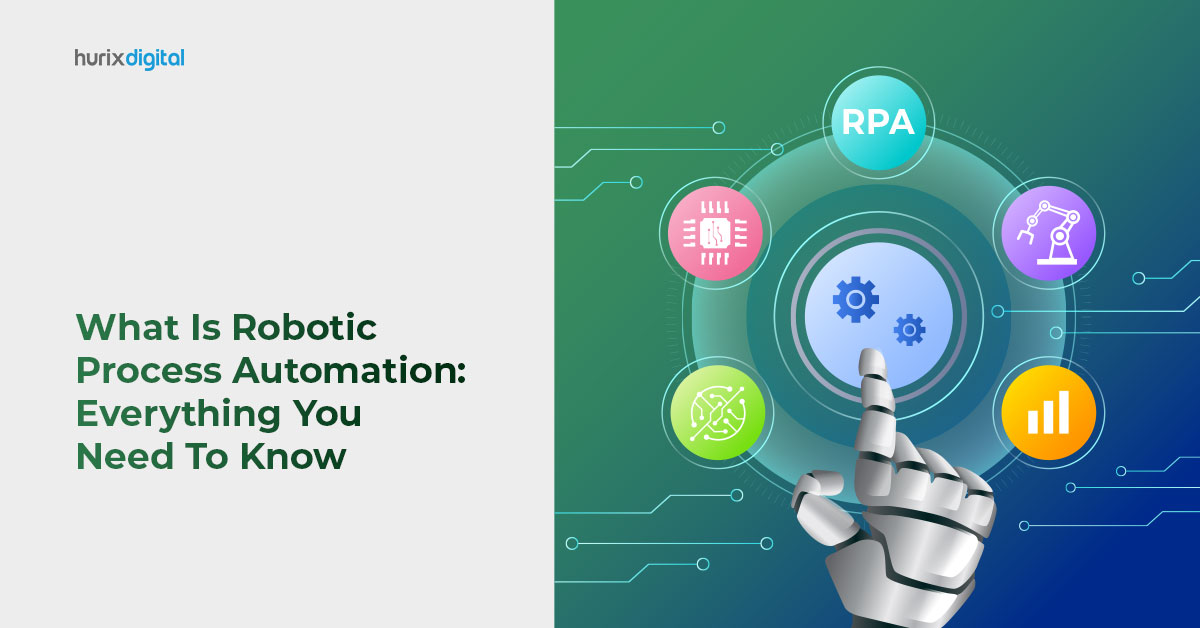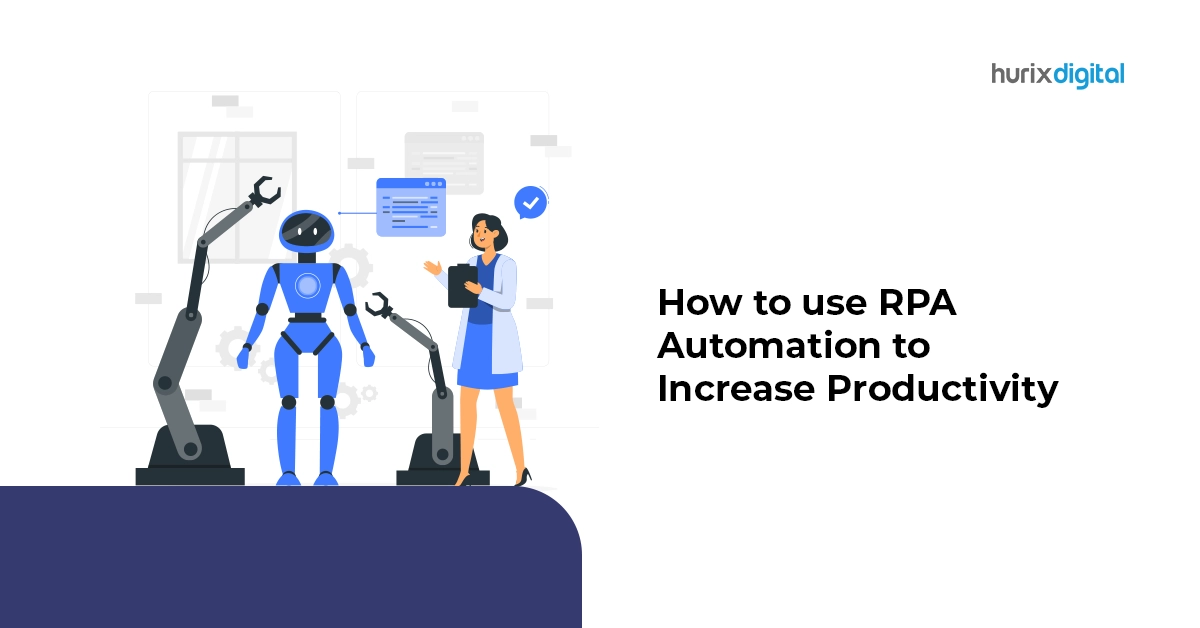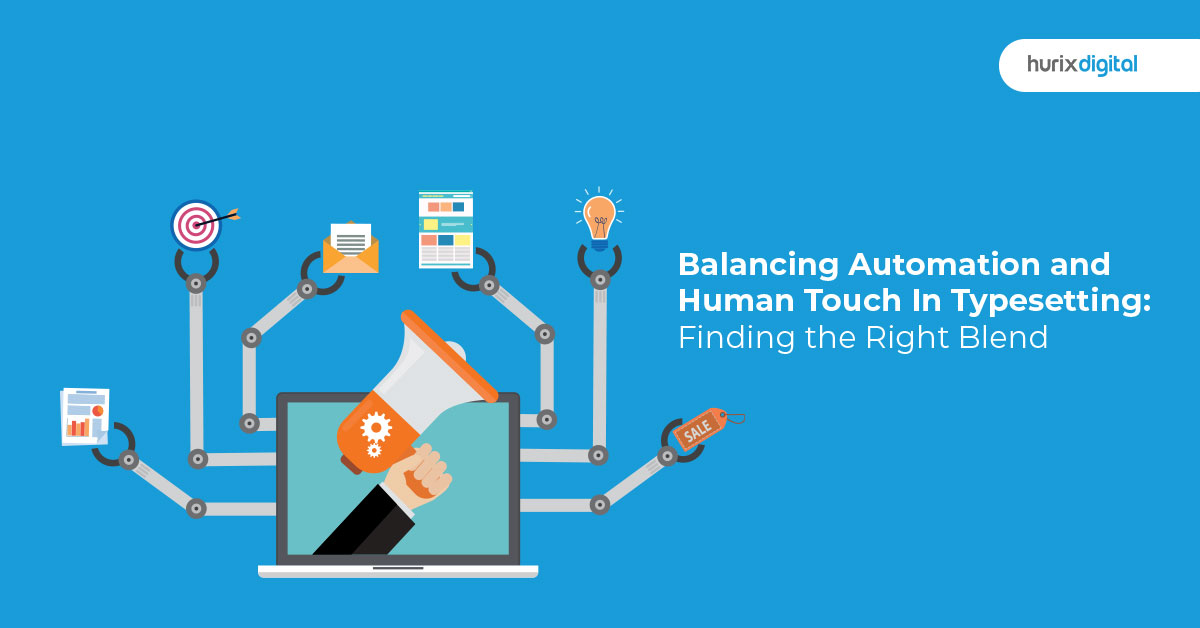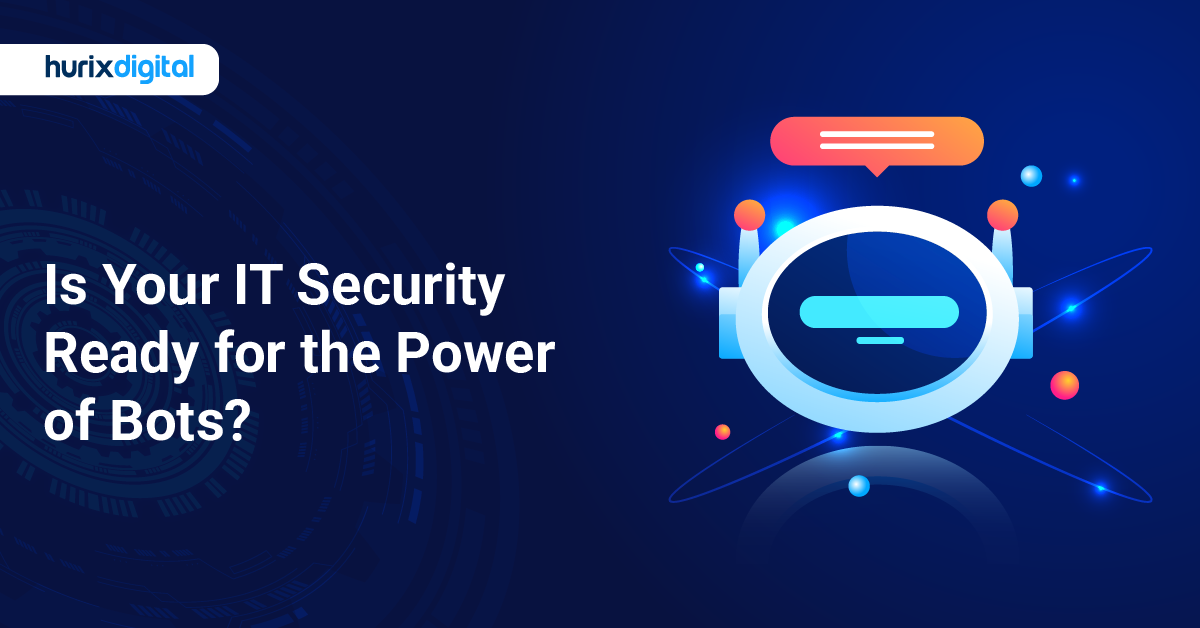
What Is RPA (Robotic Process Automation)? Everything You Need To Know
Summary
Get a comprehensive overview of robotic process automation (RPA), including its benefits, applications, and how it’s transforming business operations across industries in this article.
Digital transformation has placed immense pressure on businesses and their workforces to deliver faster outcomes. For instance, the customer service function has become a 24/7 occupation, where customers want to be served anytime, anywhere. Human beings can no longer keep pace with such expectations, and companies cannot run a sustainable, cost-effective, 24/7 customer service operation.
Yet, customer service is the most basic function that a business runs to expedite responses and engagement with customers. So, how can businesses address such challenges without going bankrupt? This is where Robotic Processing Automation, or RPA automation, comes to the rescue.
This blog deconstructs RPA automation, its adoption, benefits, and impact on the business world.
Table of Contents:
What Is RPA Automation?
RPA automation uses automation technologies to eliminate human beings from needing to perform repetitive tasks. This technology mirrors various back-office tasks such as supply chain processes, filling forms, post-sales support, extracting data, filling in forms, and moving files, among others.
The tasks can vary from industry to industry. However, the basics are the same. Employees can shift to more value-based tasks once RPA automation takes over. RPA automation differs from Artificial Intelligence (AI) automation, which focuses more on processing and leveraging data.
However, AI and RPA automation can work together in a complementary way to deliver specific outcomes. Also, unlike typical enterprise applications, RPA automation can be integrated without interfering with any existing software. Qu ck, simple integration is a core benefit.
Current Business Challenges
The onset of digital transformation has fast-forwarded the pace at which business cycles need to function, posing several challenges:
- Consumer expectations in terms of product and service quality and customer service and engagement have risen manifold. Manu l processes are no longer sustainable to keep pace. Busi esses need to overhaul and disrupt themselves to keep pace.
- The rate at which businesses must deliver a product for service to market to gain a competitive edge has been expedited. The research, production, testing, and go-to-market cycle needs to happen much faster.
- Another key challenge is that customers expect services to be delivered faster. For instance, in the eCommerce business, a company’s ability to deliver a product within the same day, and sometimes within minutes, can give them an edge in a highly competitive market.
- Technology is changing the workplace every day. But workforces are struggling to keep pace with challenges and opportunities because they do have the skills to perform newer job roles. On the other hand, hiring skilled professionals is an expensive process. Skills will also continue to change. Hence, businesses need to invest in technology frameworks that enable learning and the shift to agile workforces.
Benefits Of RPA Automation
Here is a snapshot of the advantages when applying RPA automation:
1.Expedited Turnaround Task Time
Manual execution of repetitive tasks cannot keep pace with the speed of RPA automation. Tas s such as the transfer of data, updation of customer profiles, and inventory management can be expedited, which in turn, reduces the overall time needed to execute workflow cycles.
2. Reduction Of Errors
Despite the best efforts by humans, the manual execution of repetitive tasks can result in errors, duplication, and exclusion of data. Errors can trigger large-scale consequences. Even the missing of one zero can change the entire outcome of a balance sheet, for instance. The usage of RPA automation has the potential to eliminate these issues and bring efficiency to processes.
For instance, when the impact of business RPA named CoPA was measured in a study, its application reduced the total working time by over 57.9%, yet, delivered 95.2% accuracy. The revision time efficiency improved by over 96% for editing tasks and by 70% for design tasks.
3. Enhanced Compliance
Regulatory bodies in various sectors are putting in place more stringent regulations, and companies are struggling to implement compliance. However, compliance guidelines need to be followed with great precision, and they must be applied across an entire business ecosystem.
Manual processes take much longer to introduce new compliance guidelines with uniformity. On the other hand, RPA automation enables the application of compliance guidelines from a single location, making it manageable, efficient, and thorough.
4. Increased Productivity
By far, one of the biggest benefits of RPA automation is its impact on human capital. Professionals who are forced to spend several hours in a day or week executing repetitive tasks manually tend to lose motivation and stop enjoying their work.
The adoption of RPA automation instantly frees up their bandwidth, which can instead be invested in strategy, collaboration with partners, engagement with customers and clients, learning new skills, honing leadership acumen, and engaging with the product or service itself. For instance, they can spend more time with data and leverage it strategically to drive more ambitious outcomes for their business.
5. Data-Driven Decisions
It is predicted that by 2025, 95% of decisions that use data will be at least partially automated. RPA automation of processes also leads to superior processing and centralized access to data systematically.
Companies can have customized dashboards, which allow them to study data insights and make data-driven decisions.
6. Higher Return On Investment
The overall efficiency and speed brought to processes help businesses go to market faster with new products and services. It creates a domino effect, which leads to superior engagement with customers, and enhanced quality of products and services.
This allows them to capture more market share. The collective impact of RPA automation in such processes results in a higher return on investment.
Conclusion
A significantly large number of job roles across industries and functions require workers and employees to perform a host of repetitive tasks daily. These tasks consume excessive amounts of employee bandwidth, thus eating into valuable time that can be spent more productively on tasks of higher value.
By embracing RPA automation, teams across the globe can shift their energies to tasks that require strategic problem-solving, while repetitive tasks can be relegated to automated processes. The global RPA automation market size is projected to grow from $2,659.13 million in 2022 to $66,079.34 million in 2032.
To make this shift, companies should partner with a technology specialist who understands how to balance the powers of automation with the discretion of the human touch. This is an important aspect of the entire transformation process.
If your business is looking to automate various key processes and bring more efficiency to operations, then Hurix Digital is geared to support you in meeting your growing needs. Our RPA automation technology is available as a licensed version (one-time buy) and via a subscription model.
Get in touch with us to start a conversation.
Also Read – Top 6 Ways to Improve Efficiency with RPA in Higher Education









